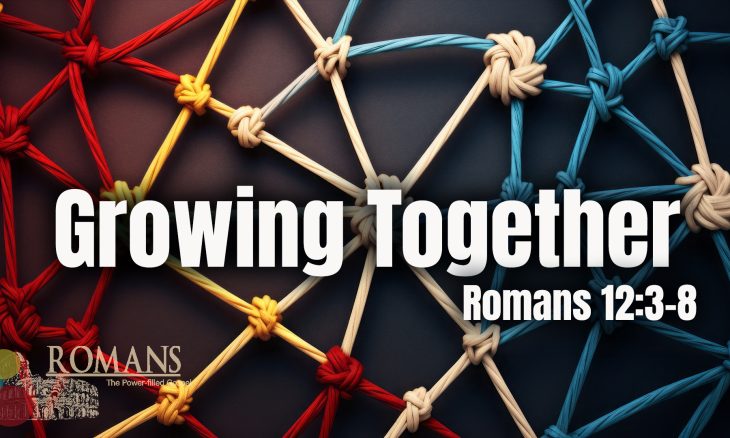In 1992, the original “Dream Team” (with Michael Jordan, Magic Johnson, Larry Bird, etc.) dominated the Olympics, showing the world what teamwork among superstars could look like.
But by 2004, things had changed the United States sent a basketball team to the Olympics that looked unstoppable on paper. With NBA stars like Allen Iverson, Tim Duncan, and rising talents like LeBron James and Carmelo Anthony, they were expected to dominate the world just as the original “Dream Team” had in 1992. But something surprising happened—they struggled.
Why? It wasn’t a lack of talent. They had more skill than any team they faced. The problem was that they didn’t play as a team.
- Instead of unity and trust, there were competing egos,
- lack of chemistry,
- and little willingness to value one another’s roles.
Meanwhile, other nations, though less gifted individually, played with discipline and teamwork. The result? The U.S. walked away with a bronze medal—an embarrassment for a team that was supposed to be untouchable.
This morning Paul applies that same principle applies to the church.
We can have amazing talent, but if we don’t walk in humility, live in unity, and use our diverse gifts to build one another up, we will fall short of God’s calling for us.
That’s exactly what Paul teaches in Romans 12:3–8—a passage that shows us how to think rightly about ourselves and how to function together as the body of Christ.
Romans 12:3–8
For by the grace given to me I say to everyone among you not to think of himself more highly than he ought to think, but to think with sober judgment, each according to the measure of faith that God has assigned. 4 For as in one body we have many members,[a] and the members do not all have the same function, 5 so we, though many, are one body in Christ, and individually members one of another. 6 Having gifts that differ according to the grace given to us, let us use them: if prophecy, in proportion to our faith; 7 if service, in our serving; the one who teaches, in his teaching; 8 the one who exhorts, in his exhortation; the one who contributes, in generosity; the one who leads,[b] with zeal; the one who does acts of mercy, with cheerfulness.
I. The Mindset of Humility
Romans 12:3
For by the grace given to me I say to everyone among you not to think of himself more highly than he ought to think, but to think with sober judgment, each according to the measure of faith that God has assigned.
Paul knows that pride is one of the greatest threats to unity in the body of Christ. When we overestimate ourselves, we distort God’s design for the church. The gifts and opportunities He gives us are not meant to boost our egos but to build others up. Humility isn’t pretending we have no value—it’s seeing ourselves clearly and honestly through God’s lens.
Illustration
Think of a sports team:
- If the kicker believed he was more important than the quarterback, or if the linemen refused to block because they weren’t “in the spotlight,” the team would collapse. Every role matters, and the team succeeds only when players value one another’s contribution.
In the church, pride causes division, but humility produces cooperation.
A: Evaluate Yourself Honestly
What has God gifted me to do?
- Not what I wish I could do
- or what I think makes me look important,
- but where He has uniquely shaped me.
Humility means embracing both strengths and limitations. (Galatians 6:3–5)
B: Avoid Comparison
- Pride comes when we think we’re better than others.
- Despair comes when we assume we have nothing to offer.
Both are distortions. God gives each of us a role to play.
C: Pray for God’s Perspective
A simple prayer: “Lord, help me see myself as You see me—no more, no less.”
We often are tempted to look to the far horizon and think if I were there then I would be more effective.
- While sometimes in life a change of location is necessary often we find that where ever we go there we are and that we will be as effective in a new location as we are right now.
This keeps us from puffing ourselves up or tearing ourselves down.
D: Practice Humility in Community
- Listen before speaking.
- Celebrate others’ gifts and victories.
- Step into serving where needed, even in hidden roles.
In the workplace, think of a hospital. If doctors considered themselves too important to listen to nurses, or custodians felt unneeded and stopped showing up, patients would suffer. Every role, from surgeon to janitor, is essential for healing to happen.
Likewise, the body of Christ only functions properly when every part operates with humility.
II. The Unity of the Body
Romans 12:4-5
For as in one body we have many members,[e] and the members do not all have the same function, 5 so we, though many, are one body in Christ, and individually members one of another.
Paul moves from the mindset of humility to the picture of unity.
The Christian life was never meant to be lived in isolation.
- God places us into the body of Christ, where each believer is connected, valued, and needed.
- Just as the human body has diverse parts that serve different functions, so the church thrives when each member embraces their God-given role.
I Cor 12:14
For the body does not consist of one member but of many. 15 If the foot should say, “Because I am not a hand, I do not belong to the body,” that would not make it any less a part of the body. 16 And if the ear should say, “Because I am not an eye, I do not belong to the body,” that would not make it any less a part of the body. 17 If the whole body were an eye, where would be the sense of hearing? If the whole body were an ear, where would be the sense of smell? 18 But as it is, God arranged the members in the body, each one of them, as he chose. 19 If all were a single member, where would the body be?20 As it is, there are many parts,[b] yet one body.
The hand cannot say, “I don’t need the foot.” Even the small parts matter—stub your pinky toe or get an eyelash in your eye, and you quickly realize their importance! Remove one part, and the whole body feels the loss.
The same is true in the church. A single missing part—an encourager, a servant, a prayer warrior—leaves the whole weaker.
A: Don’t Undervalue Your Role
Some think, “I’m not a preacher, teacher, or leader—my role doesn’t matter.” That’s a lie. Quiet, faithful acts of service often strengthen the body more than the visible roles. (1 Corinthians 12:22–23)
B: Don’t Undervalue Others
Every person in Christ is indispensable. Even if their gifts differ from yours, they bring strength you don’t. When you dismiss others, you weaken the whole body.
C: Check Your Connection
Ask yourself:
- Am I living connected, or isolated?
- Am I contributing to the health of the body, or simply consuming?
- Do I celebrate and build up others, or compete and compare?
Think about a construction crew.
The architect, electrician, plumber, and laborer all play different roles. If even one fails to do their part, the project stalls.
In the same way, the church is God’s “building” (Ephesians 2:21), and it takes every member—seen and unseen—working together to build His kingdom.
III. The Diversity of Gifts
Romans 12:6-8
Having gifts that differ according to the grace given to us, let us use them: if prophecy, in proportion to our faith; 7 if service, in our serving; the one who teaches, in his teaching; 8 the one who exhorts, in his exhortation; the one who contributes, in generosity; the one who leads, with zeal; the one who does acts of mercy, with cheerfulness.
We are united in Christ, we are not uniform.
God, in His grace, has given each believer unique spiritual gifts to build up the church.
- These gifts are not earned achievements or badges of spirituality; they are graciously entrusted by God.
- The beauty of the body of Christ is found in its variety—when each member brings their gift to the table, the church becomes a place of richness and strength.
Think of a church potluck. If everyone brought the same dish—say, twenty bowls of potato salad—the meal would be lacking. But when each person contributes something different—meat, bread, vegetables, dessert—the table is full and satisfying. The church works the same way: when everyone brings their unique gift, the family of God thrives.
So if your gift is…..
- Prophecy (Truth-Telling): Speak God’s Word with faithfulness, not bending to cultural pressure or personal preference. (2 Timothy 4:2)
- Serving: Show Christ’s love in practical ways, often behind the scenes, without expecting recognition. (Mark 10:43–45)
- Teaching: Help others understand God’s truth clearly and apply it wisely. A good teacher feeds hearts as well as minds.
- Encouraging (Exhortation): Lift up the weary with words of hope and courage. A timely word can change the course of someone’s day—or life. (Hebrews 3:13)
- Giving: Share generously of your resources, whether finances, time, or skills, trusting God to supply your needs. (2 Corinthians 9:7)
- Leading: Guide with diligence, integrity, and care—not for control, but for the good of those you lead. Shepherd, don’t dominate. (1 Peter 5:2–3)
- Mercy: Show compassion to the hurting with joy, not as a burden. Mercy brings the tenderness of Christ into broken places.
In an orchestra. Every instrument has a different sound—strings, brass, woodwinds, percussion. Alone, they are incomplete. Together, under the direction of a conductor, they create something beautiful and powerful. In the same way, the church becomes God’s symphony when every believer plays their part in harmony with the Spirit.
Conclusion:
The 2004 Olympic team learned a hard lesson: it doesn’t matter how many stars you have if no one is willing to play together. Talent without humility, unity, and teamwork will always fall short.
The same is true in the church. God didn’t design His people to compete for the spotlight or to live in isolation. He designed us to be one body—different parts, different gifts, but one purpose. When we each embrace our God-given role, value one another, and work in harmony, the church becomes unstoppable.
So let me ask: are you living as a “star,” chasing your own recognition, or are you playing as part of the team, serving faithfully where God has placed you?
The world doesn’t need a church full of egos—it needs a church full of humble, unified, Spirit-filled people who use their gifts for God’s glory.
When we live this way, we show the world something far greater than any gold medal. We show them Jesus.
- God designed the Church like a body—different parts, one purpose.
- When we walk in humility, embrace unity, and use our diversity of gifts, we display Christ to the world.
A firetruck shows up to a fire, but if only the driver worked while the others sat back, the house would burn down.
- The fire is only put out when everyone does their job.
- The world is on fire with sin and brokenness—every member of Christ’s body is needed.
Call to Action:
- Check your heart: Am I walking in humility?
- Check your connection: Am I living in unity with the body?
- Check your gift: Am I actively using the gift God has given me?















